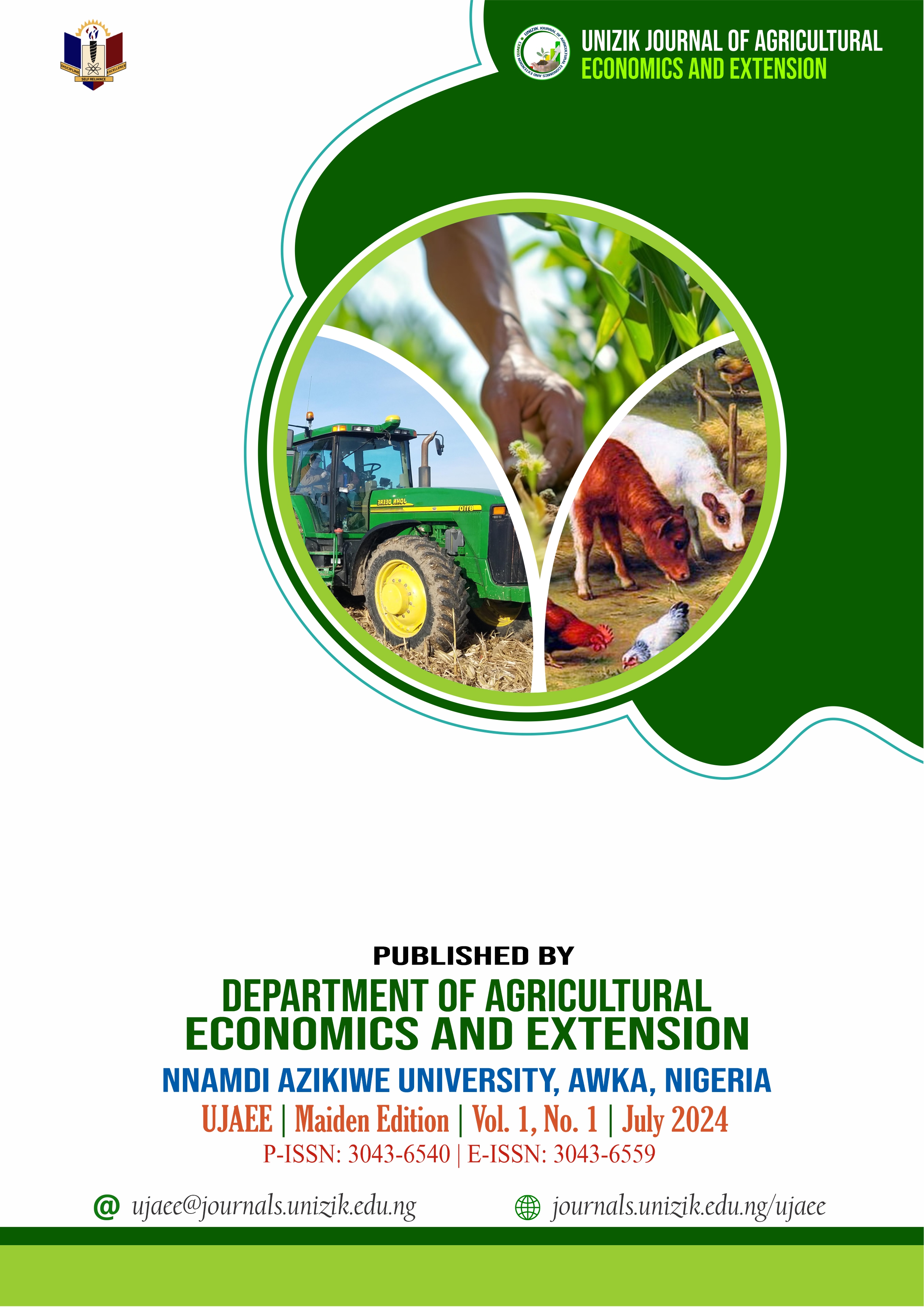Demographic Factors influencing Default in Rotating Savings and Credit Association in Yewa North Local Government Area of Ogun State, Nigeria
Keywords:
Default, Demographics, Nigeria, Ogun State, Random ROSCAsAbstract
The high rate of default among Rotating Savings and Credit Association (ROSCAs) in Yewa North Local Government Area of Ogun State necessitates studies to understand the underlying cause. To this end, this study assessed the effect of demographics of participants in the association on default likelihood. The study employed quasi-experimental research design. The sample for the study was obtained through proportional sampling technique. Descriptive and inferential statistics including frequency distribution tables and logit regression model were used in analysing the data. Results revealed that participants aged 51-60 had the highest default rate at 20.6% within the group of defaulters. The majority (57.3%) of defaulters were found to be females. Lower earners (less than N50,000 per month) constituted the highest percentage (42.7%) within the group of defaulters. Dependency ratio (t-value =,3.472), age (t-value = 4.073), duration of membership (t-value = 2.178), employment status (t-value= 1.759) and household size (t-value = 2.516) positively influence default in the association while income (t-value = -2.315) negatively influenced default in the association. Marginal effect results revealed that a unit increase in dependency ratio, age, membership duration, employment status, and household size increased default by 6.85%, 0.41%, 3.52 %, 4.91 and 1.47% respectively while a unit increase in income reduced default by 0.07%. The study concludes that household size, income level, age, and the dependency ratio are significant factors influencing likelihood of default in ROSCAs. The study recommends tailored financial education programs that specifically address the needs of members with larger households or higher dependency ratios. The study suggests future research should focus on a longitudinal analysis of default rates, a broader geographical scope, and the effect of external economic conditions on ROSCAs to enhance understanding and generalizability of findings.
Downloads
Published
Issue
Section
License
Copyright (c) 2024 UNIZIK Journal of Agricultural Economics and Extension

This work is licensed under a Creative Commons Attribution-NonCommercial-NoDerivatives 4.0 International License.




